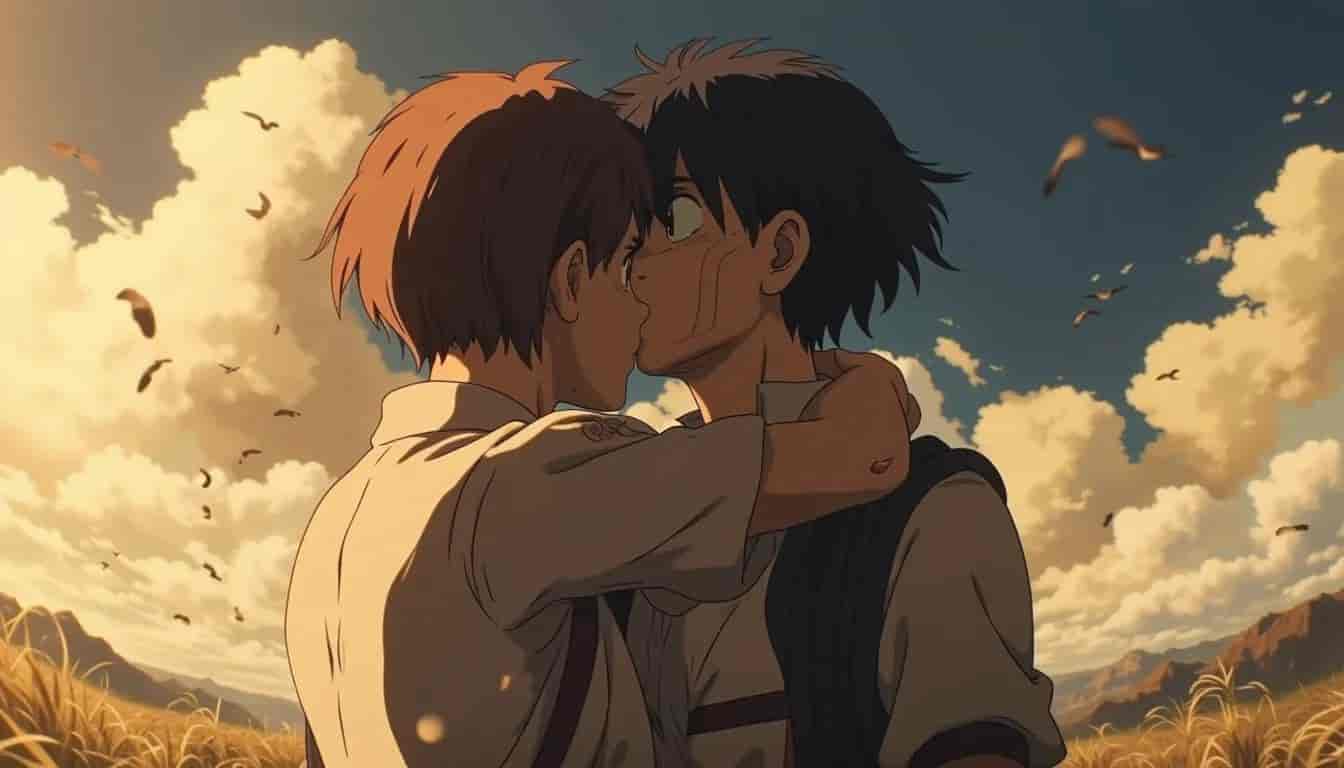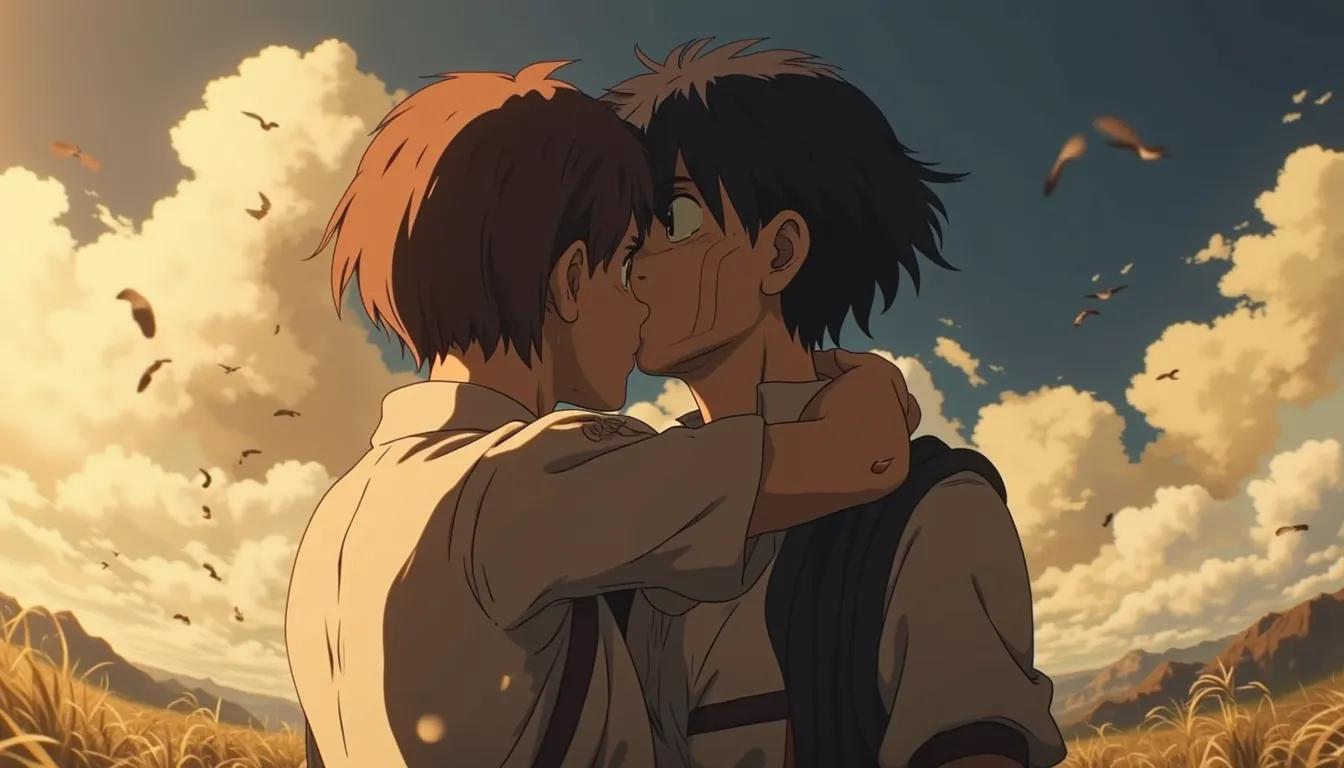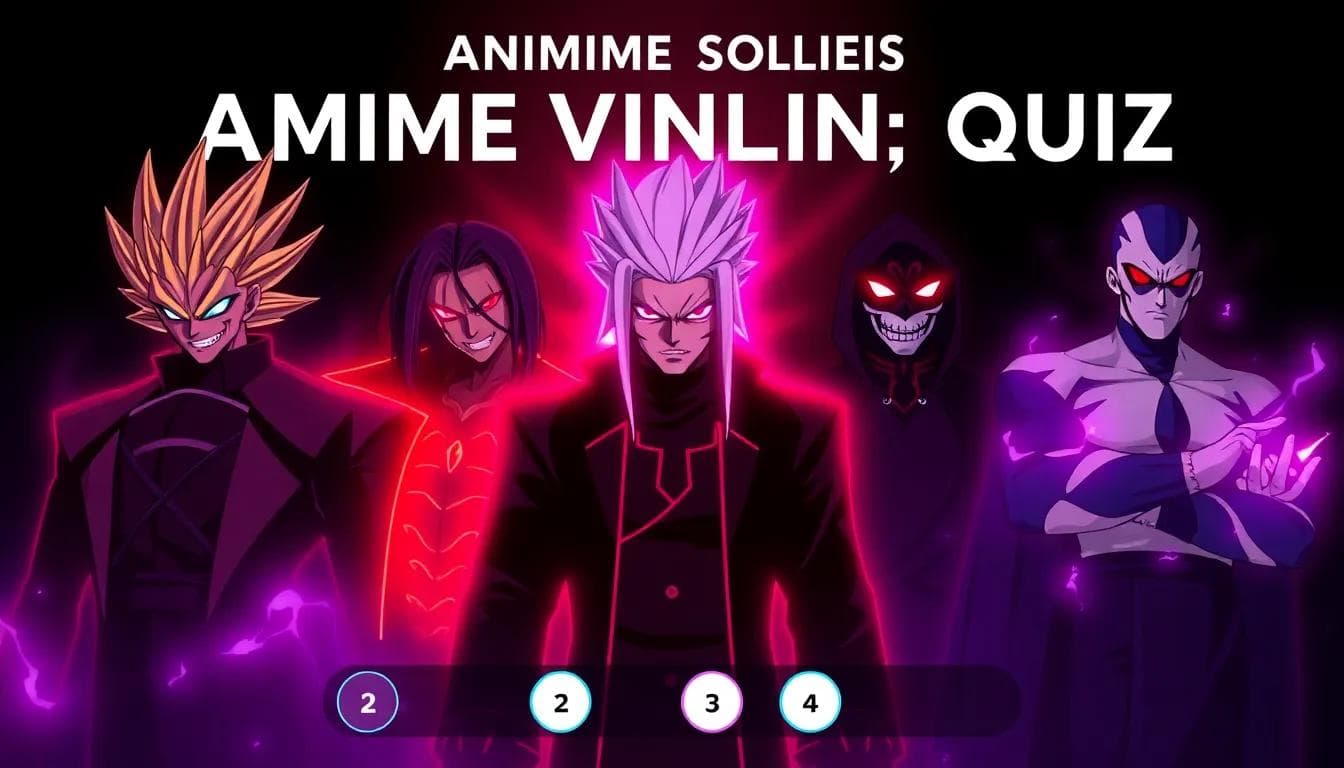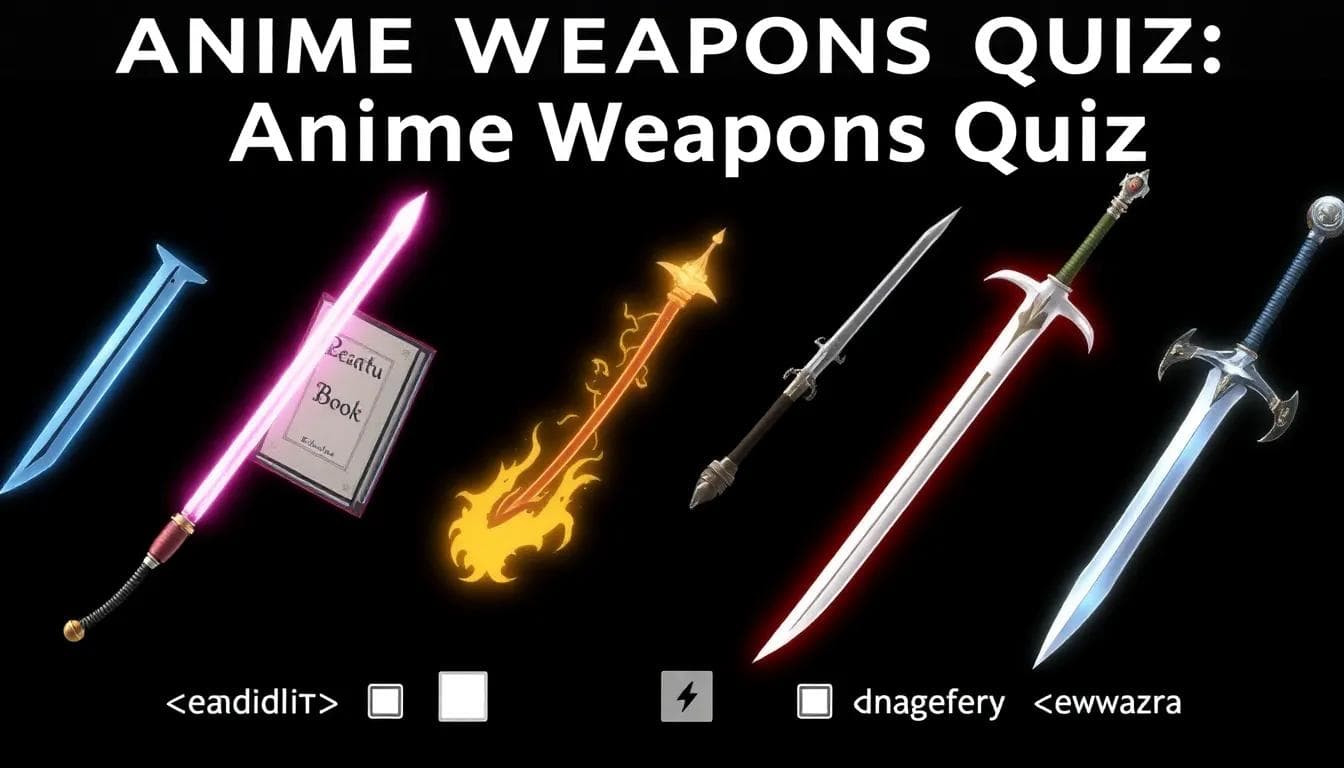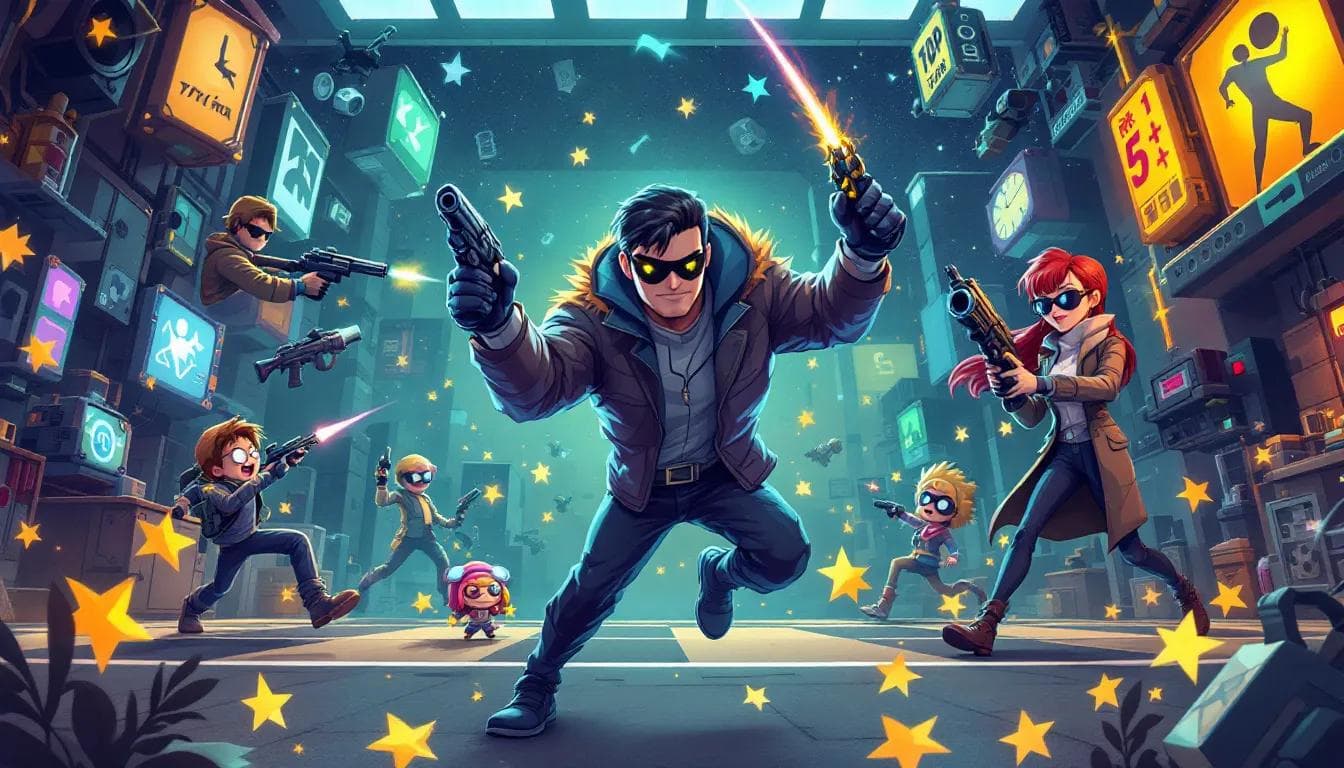Attack on Titan Ending Explained: A Complete Analysis of Eren's Plan and the Rumbling
The ending of Attack on Titan (Shingeki no Kyojin) remains a contentious topic among fans. Hajime Isayama's epic saga concluded with a mix of triumph, tragedy, and ambiguity, leaving many grappling with Eren Yeager's motivations and the ultimate consequences of the Rumbling. This guide aims to provide a comprehensive analysis of the Attack on Titan ending, the AOT ending explained, focusing on Eren Yeager's ending, the Rumbling explained, and the implications for characters like Mikasa and the fate of Paradis Island, addressing popular questions and criticisms surrounding the Attack on Titan finale and AOT Manga ending.
Understanding Eren's Paradoxical Goal
Eren's actions in the final arc, particularly initiating the Rumbling, shocked many who viewed him as a freedom-loving protagonist. He transforms from battling for humanity's survival to enacting a global genocide, seemingly contradicting his core values. To understand this shift, we must delve into his psychological state and the influence of the Attack Titan's powers.
- The Burden of Future Memories: Eren's inherited memories from future Attack Titan inheritors painted a bleak picture. He saw the potential future of Paradis' destruction and the ongoing cycle of hatred. This burden heavily influenced his decision-making, driving him towards a drastic "solution." He wasn't merely reacting to immediate threats; he was attempting to preemptively reshape history, a concept central to understanding the AOT manga ending.
- Freedom at Any Cost: Eren's desire for freedom wasn't just about escaping confinement within the walls. It evolved into a darker, more individualistic pursuit—freedom from destiny itself. He aimed to break the cycle of hatred, even if it meant shouldering the world's hatred himself. This twisted interpretation of freedom ultimately fueled the Rumbling.
- The Influence of the Attack Titan: The Attack Titan's ability to see glimpses of the future played a significant role in warping Eren's perspective. These fragmented visions, coupled with his inherent impulsiveness, led him down a path of destruction. He believed he was making the only choice possible, guided by a predetermined future, a key element to grasping the AOT ending explained.
- Manipulating History, Orchestrating a "Necessary Evil": Eren's plan wasn't simply about eradication. He meticulously manipulated events, ensuring his friends became heroes by stopping him. By framing himself as the ultimate antagonist, he aimed to unite the world against a common enemy, creating a foundation for peace for Paradis. This calculated manipulation forms the core of understanding Eren Yeager's ending.
Deconstructing The Rumbling: A Necessary Evil or Act of Genocide?
The Rumbling, the apocalyptic march of colossal Titans within the walls, remains the most controversial aspect of the Attack on Titan finale. Its ethical implications are complex and demand nuanced analysis.
- A Desperate Gamble: Eren viewed the Rumbling as a last resort, a horrifying but necessary tool to force the world to acknowledge Paradis' existence and deter future attacks. While morally reprehensible, he believed it was the only way to secure a future for his people. This logic is crucial to understanding the Rumbling explained.
- The Cost of Peace: The Rumbling's devastation underscored the immense cost of achieving peace. The near-total annihilation of the world outside Paradis raised compelling questions about the morality of sacrificing countless lives to save a few. The destruction served as a stark commentary on the cyclical nature of violence.
- Unintended Consequences: While Eren believed he controlled the narrative, the Rumbling's impact was unpredictable. It ignited further conflicts and deepened existing hatred, highlighting the limitations of attempting to control history through forceful means. This unintended chaos is vital when exploring the Attack on Titan ending.
- A Catalyst for Change? While horrifying, the Rumbling paradoxically forced the world to confront its prejudices and recognize its shared humanity. The shared trauma became a catalyst for dialogue and potential reconciliation in the aftermath, a point of hope in a devastated world.
Mikasa and Eren: A Tragic Conclusion to a Complex Relationship
The relationship between Mikasa and Eren, central throughout the series, reached a heart-wrenching conclusion in the Attack on Titan ending. Mikasa's choice to kill Eren and ultimately free him from the Attack Titan's curse, was a powerful moment of agency, albeit tinged with profound sadness.
- Breaking the Cycle: Mikasa's decision symbolizes breaking the cycle of hatred and codependency. By ending Eren's life, she liberated him from the burden of his mission and simultaneously freed herself from her unwavering devotion to him. This crucial moment deeply impacts the Mikasa and Eren ending.
- The Power of Choice: While seemingly driven by a predetermined path, Mikasa ultimately exercises her free will. Her act of defiance highlights individual autonomy even within a narrative heavily influenced by destiny.
- A Bittersweet Goodbye: The AOT manga ending depicts Mikasa visiting Eren's grave years later, signifying her ongoing grief and complex feelings. While she made peace with her decision, the emotional scars remain, representing the lasting impact of their intertwined destinies.
Paradis Island's Uncertain Future
The Attack on Titan ending leaves Paradis Island's future ambiguous. While liberated from the immediate threat of annihilation, the island faces a challenging path to rebuilding and reconciling with the remnants of the world.
- The Legacy of the Rumbling: The island bears the weight of the devastation caused by the Rumbling. Reconstructing its international relationships, particularly with those who survived the genocide, is a daunting task. This precarious position is essential when analyzing Paradis Island Destruction.
- The Seeds of Hope: Despite the challenges, the ending hints at potential peace. Historians from Paradis travel to negotiate with other nations, signifying a desire for dialogue and understanding.
- An Uncertain Peace: While diplomatic efforts are underway, tensions remain. The ongoing presence of weaponry in the final scene reminds us of the fragile nature of peace and the ever-present threat of renewed conflict. This ambiguity is a key characteristic of the Attack on Titan final.
Addressing Criticisms and Interpretations
The Attack on Titan ending faced significant criticism, primarily centered on perceived inconsistencies in character development, the effectiveness of Eren's plan, and the pacing of the final arc.
- Eren's Character Arc: Critics argue that Eren's transformation into a mass murderer felt jarring and inconsistent with his earlier characterization. Others argue that his actions were a logical, though extreme, progression of his burdened mindset and distorted view of freedom.
- The Efficacy of the Rumbling: The Rumbling's effectiveness as a solution is debatable. Did it truly create a lasting peace or simply sow the seeds of future conflict? The ambiguity of the ending encourages viewers to contemplate these complexities.
- Pacing and Exposition: Some fans felt the rapid pacing of the final arc, particularly the amount of exposition required to explain Eren's plan, detracted from the emotional impact of the story's conclusion.
Conclusion
The Attack on Titan ending offers a complex and thought-provoking conclusion to a sprawling narrative. While the choices made by characters like Eren and Mikasa remain controversial, they provide ample fodder for analysis and discussion. The story's exploration of themes such as freedom, the cyclical nature of violence, and the burden of history leaves a lasting impact. Whether one ultimately agrees with the choices made, the ending's ambiguity forces us to confront difficult questions about the cost of peace, the morality of sacrifice, and the enduring power of hope in the face of overwhelming despair. Understanding Eren Yeager's ending, the Rumbling explained, Mikasa and Eren ending, and the implications for Paradis island destruction requires grappling with these multifaceted themes and embracing the narrative's inherent complexities. While not universally beloved, the ending undoubtedly delivers a powerful and memorable conclusion to a truly epic saga.
